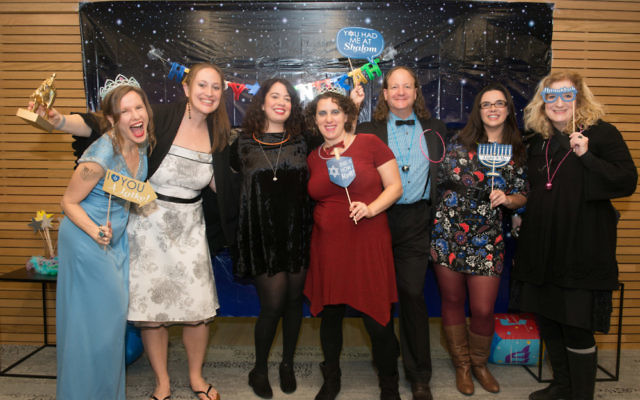InterfaithFamily Atlanta: Resolutions for Your Shul
A few questions can help assess how inclusive your synagogue is.
Just like the approach of the secular new year, the approach of Rosh Hashanah, the Jewish new year, is a great time to reflect on the past year and to make resolutions about how you can be better in the year ahead.
Synagogues can use this time to take stock of how they’ve been welcoming and inclusive to interfaith couples and families over the past year and how they can be even more welcoming and inclusive in the year ahead. One way to do this is to participate in InterfaithFamily’s Interfaith Inclusion Leadership Initiative.
But even for those not participating in IILI, this is a great time of year to come up with an action plan for how to be more welcoming and inclusive. Below are suggestions based on a webinar on “Language and Optics” that we are presenting to IILI participants. These suggestions are the combined work of a number of InterfaithFamily staff members over the years, based on our vast experience working with interfaith couples and families.
What is your synagogue’s response to each of the following questions? Based on your responses, you can see where you have work to do.
- Does your synagogue’s website have photos that present the diversity of your community, including people of color, same-sex couples, mixed-race families, etc.? While presenting diversity, you also want to be sure to be honest and make sure to present your community as it actually is, not how it aspires to be.
- Are all Hebrew words and Jewish “insider terms” that you use on your website translated and transliterated?
- Is there an explicit statement on your website letting interfaith couples and families know that you want them to be part of your community?
- Does your website have resources and links to resources (such as interfaithfamily.com) for interfaith couples and families?
- Who may be a member of your synagogue? Where are membership policies stated? Are they clearly stated on the website or in a pamphlet/brochure?
- Who may be on which committees in your synagogue, and who may hold leadership roles? Where is this stated? On the website or in a pamphlet/brochure?
- Are printed ritual policies with explanations accessible? Where are they? On the website? In a pamphlet/brochure? In a bar/bat mitzvah manual? Do you also have clearly stated policies on all the following?
- What role may parents and other family members who are not Jewish have during a baby naming?
- What role may parents and other family members who are not Jewish have during a bar/bat mitzvah?
- May members who are not Jewish open the ark?
- If there is a synagogue cemetery (or local cemetery), may family members who are not Jewish be buried there?
- Does your religious school handbook include information about children from interfaith homes?
- Does your b’nai mitzvah handbook include information about interfaith families and extended family from other backgrounds?
- Are resources for interfaith families (such as InterfaithFamily’s booklets on a variety of topics) set out and easily accessible?
- Is there a guide to your Shabbat service available for those who aren’t comfortable with the service (b’nai mitzvah guests and others)?
InterfaithFamily hopes these questions can help guide your synagogue in institutional cheshbon nefesh (accounting of the soul) at this time of the year and encourage an action plan for becoming more welcoming and inclusive of interfaith couples and families in the year ahead.
Rabbi Malka Packer is the director of InterfaithFamily/Atlanta.




comments